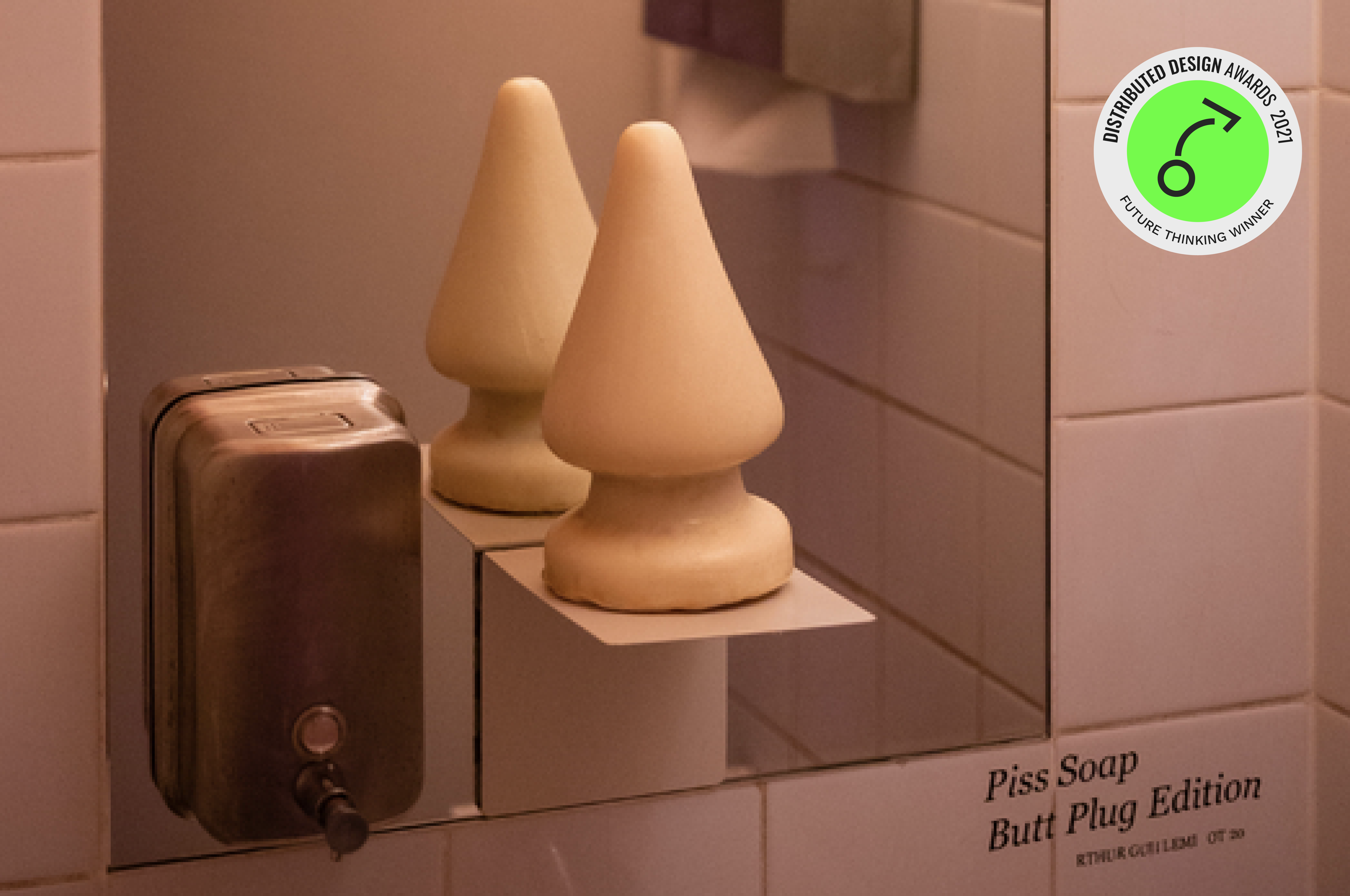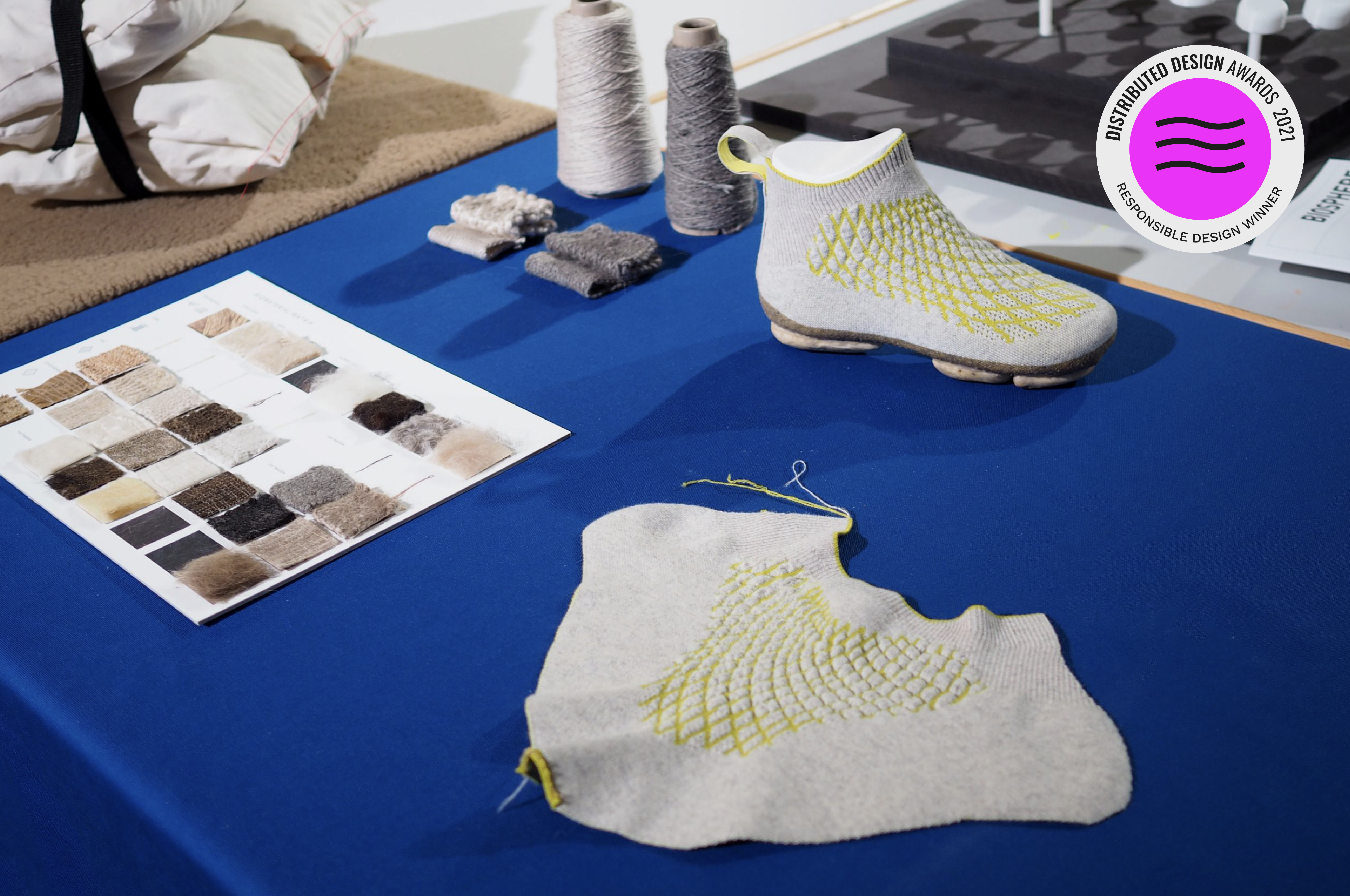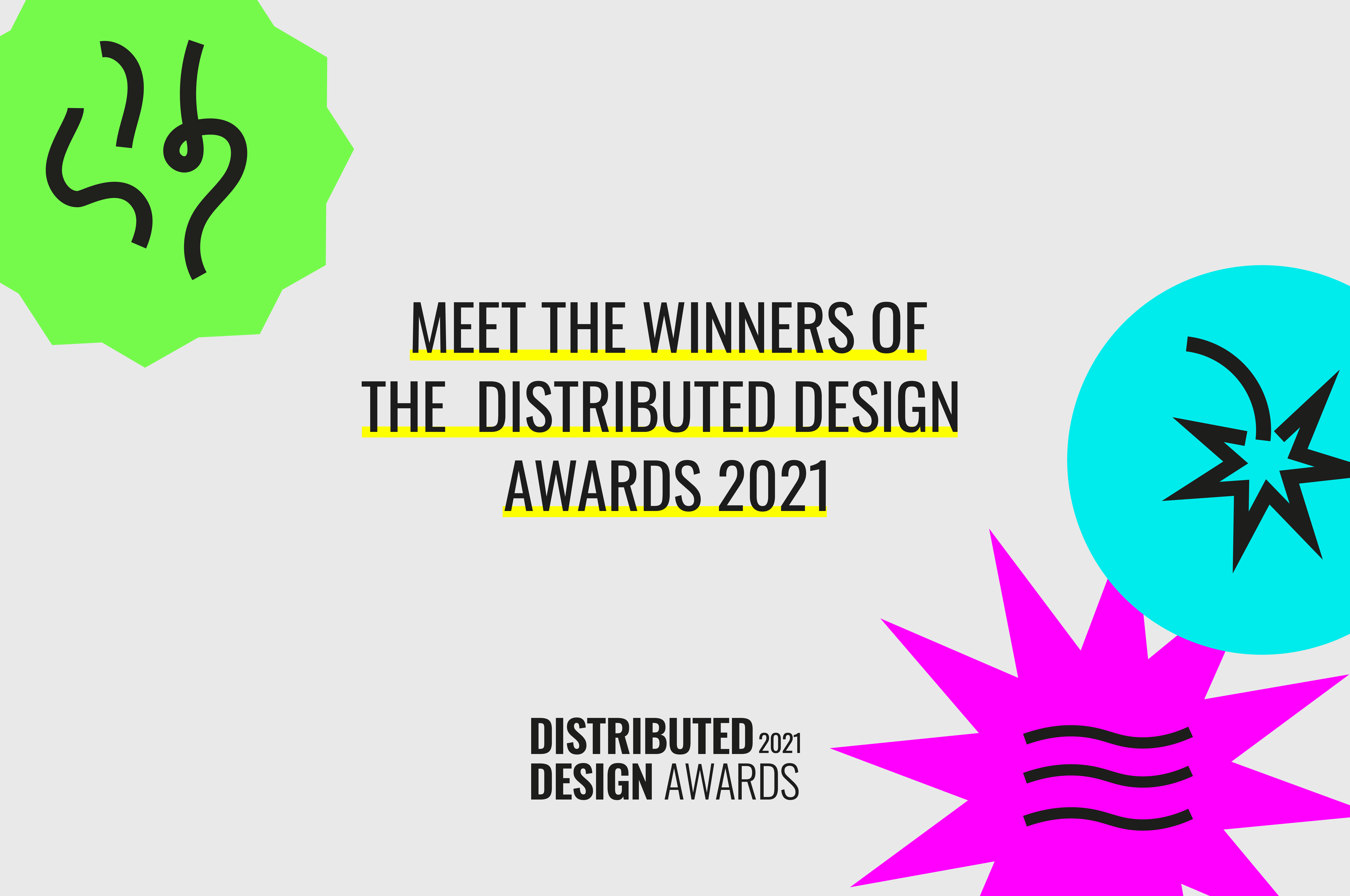Over 70 amazing submissions were shortlisted and 12 finalists selected – and now the 5 winners of this year’s Distributed Design Awards 2021 have been determined, recognizing the most innovative, supportive, and sustainable design projects across Europe.
The Distributed Design Awards celebrate the best maker and design responses to the post-industrial design paradigm and consist of the categories Future Thinking, Responsible Design, Adaptable and Open Design, Project Excellence Award, and People’s choice.
This year’s jury was made up of Nadya Peek (HCDE), Guillaume Charny-Brunet (SPACE10), Liza Chong (The Index Project), Primavera de Filippi (Berkman Klein Centre, Harvard), Daniel Charny (Forth) and Indy Johar (Dark Matter Labs). The People’s choice award was given to the project with the most online votes by the Distributed Design Network.
SELECTED WINNER FOR FUTURE THINKING
Design for a better future, considering social and cultural challenges and human wellbeing – with the prize of a SPACE10 mentorship.

Piss Soap
Designed by Arthur Guilleminot in the Netherlands. Piss soap is made out of human activity waste materials, including human urine, and thereby challenging our understanding of dirtiness and cleanliness. The raw materials required to make piss soap can be collected locally within the city and then be used for cleaning streets and other public spaces.
The other finalists of this category were PapeerStack, ATHOS ERA and Meal Engine.
SELECTED WINNER FOR RESPONSIBLE DESIGN
Design that engages circular design principles such as responsible materials. It draws on the capacity of local materials and or knowledge, including craft or specialist processes – with the prize of a IDEO U Designing a Business course.

Sneature
Designed by Emilie Burfeind in Germany. Sneature is the design of a waste-based, customisable and biodegradable sneaker. By using additive manufacturing methods such as 3D printing, Sneature can be produced on-demand with minimum energy consumption and decentrally in a micro-factory with the use of local raw materials involving the local community.
The other finalists in this category were Agro, Nella and Green Box.
SELECTED WINNER FOR ADAPTABLE AND OPEN DESIGN
Design that is made open source, is transparent and/or allows for adaptation and/or customisation – with the prize of a The Index Project mentorship.

Uppgradera
Designed by Adam Miklosi in Hungary. Uppgradera is a 3D printed collection of accessories of IKEA products, aiming to solve common issues of the products and make them more pleasant and efficient. The designer behind this project was inspired by IKEA products and the faults that he has detected by using them.
The other finalists in this category were Nomade Editions, REVASE and DOMINGO CLUB – INCUBATOR.
SELECTED WINNER FOR PROJECT EXCELLENCE AWARD
Tackling all four core principles of the distributed design model: Open, Ecosystemic, Sustainable and Supportive – winning 2.000 € in funding to further develop the project.

Domingo Club – Incubator
Designed by Maud Bausier and Antoine Jaunard in Spain. Domingo Club is an open-source incubator for fermentation. The designers see fermentation as a collaboration with microorganisms focusing on local and seasonal instead of rapid and global food production. Domingo Club is prototyped and produced using digital fabrication techniques and can therefore be (re)produced in any Fab Lab or Makerspace.
SELECTED WINNER FOR PEOPLE’S CHOICE
Design recognised by people and the Distributed Design network online/ the most voted entry – with the prize of a Craftbot Flow 3D printer

SeedCup
Designed by David Minatti-Krauhs and Agatha Sowinski in Austria. SeedCup is a biodegradable single-use coffee cup made out of coffee grounds that releases a seed of a local plant when decomposing. The cups are produced at the cafés creating a circular production and consumption circle. This leads to a reduction of emissions from transportation and the construction of a manufacturing site as well as of waste generated by cups made out of paper and plastic.
Check out the shortlisted projects and the finalists of this year’s Distributed Design Awards. Thank you to all the applicants and congratulations to the winners – this year’s Awards have been deeply inspiring. All the projects beautifully represented the evolving identity of Distributed Design and we look forward to seeing them continue to being developed!
